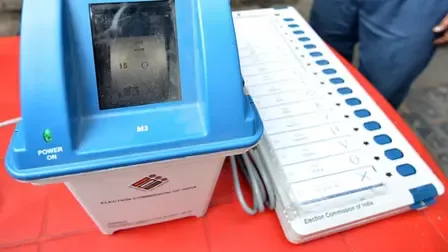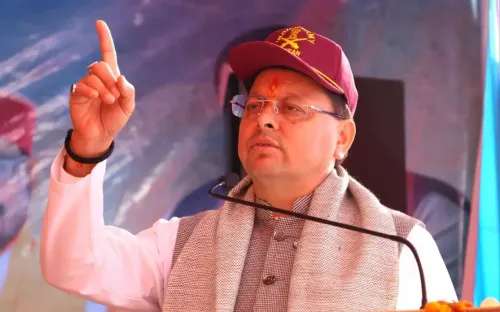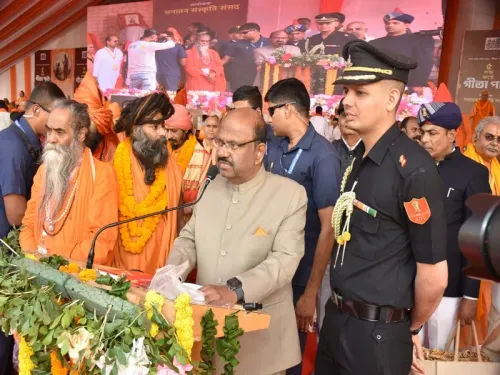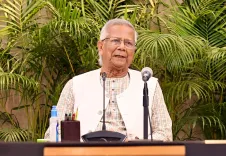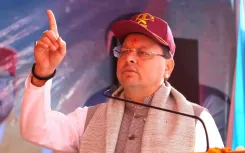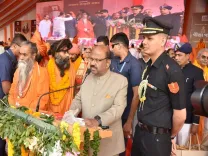MP: 16th Finance Commission Engages with Urban and Rural Bodies in Bhopal
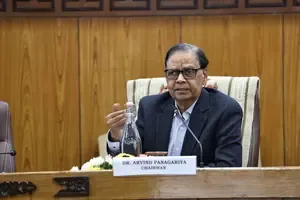
Synopsis
Key Takeaways
- 16th Finance Commission assesses state needs
- Mayors from urban bodies participate
- Focus on tribal population grants
- Proposed tech grants for urban services
- Commission to visit Indore and Pithampur
Bhopal, March 5 (NationPress) The 16th Central Finance Commission, headed by Chairman Arvind Panagariya, convened with delegates from both rural and urban bodies in Bhopal on Wednesday.
The Commission, under Pangariya's leadership, arrived in Bhopal to evaluate the financial requirements of the state and the distribution of taxes.
Among the urban local body representatives, four mayors attended the meeting, including Indore Mayor Pushyamitra Bhargav, Satna Mayor Yogesh Tamrakar, Khandwa Mayor Amrita Yadav, and Bhopal Mayor Malti Rai.
Furthermore, 11 other municipal council and committee presidents from various districts in Madhya Pradesh were present.
"During the discussions, it was emphasized that the grants allocated to urban local bodies should take into account the fact that Madhya Pradesh has the largest tribal population in the nation," stated an official.
A separate grant was proposed to promote the adoption of technology to enhance public services in urbanization initiatives, it was noted.
The delegation is also expected to discuss the state’s financial requirements at a meeting on March 6 at the Kushabhau Thakare convention center in Bhopal, as announced by Chief Minister Mohan Yadav on Tuesday.
In addition to meetings in Bhopal, the Commission plans to tour other regions of the state, engaging with public representatives and senior officials from March 5 to March 8, according to official reports.
On March 7, members of the Commission will visit the financial hub of Indore. They are scheduled to inspect the biogas plant operated by the Indore Municipal Corporation and the Special Economic Zone (SEZ) in Pithampur.
Importantly, Madhya Pradesh currently receives a 7.85 percent share of Central taxes and is advocating for an increase to nearly 9 percent.
The state ranks third in the nation for tax devolution and has assigned a dedicated team of senior finance department officials to strengthen its appeal for a larger share.


